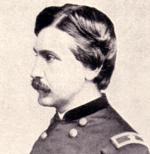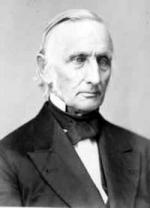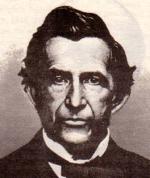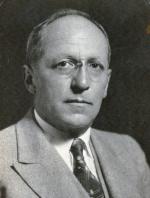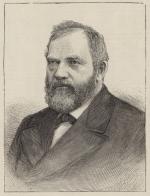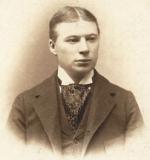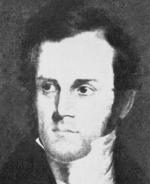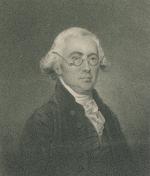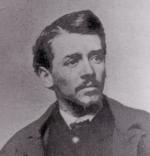Benjamin Rush (1745-1813)
Benjamin Rush was born to John and Susanna Harvey Rush on December 24, 1745. The family, which included seven children, lived on a plantation in Byberry, near Philadelphia. When Benjamin was five his father died, leaving his mother to care for the large family. At age eight the young boy was sent to live with an aunt and uncle so as to receive a proper education; he went on to study at the University of New Jersey (now Princeton) and received his bachelor's degree from that institution in 1760. Upon returning to Philadelphia, Rush studied medicine under Dr. John Redman from 1761 until 1766, at which time he departed for Scotland to finish his studies at the University of Edinburgh. Receiving his medical degree in June 1768, Rush traveled on to London to further his training at St. Thomas's Hospital; it was in London that Rush first encountered Benjamin Franklin.
Rush returned to Philadelphia in 1769 and started practicing medicine while also serving as the professor of chemistry at the College of Philadelphia. He wrote treatises on medical procedure, politics, and abolition, helping to found the Pennsylvania Society for Promoting the Abolition of Slavery. His writings on the crisis brewing between the colonies and Britain brought him into associations with such leaders as John Adams, Thomas Jefferson, and Thomas Paine. At the outbreak of war, Rush joined the continental army as a surgeon and physician.


